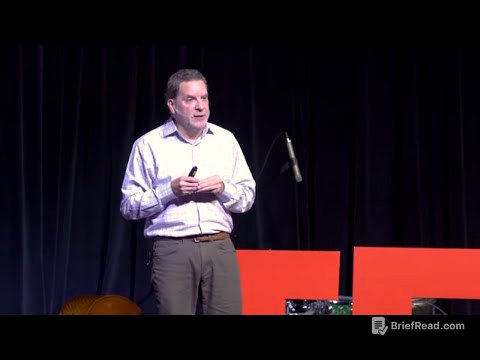TLDR;
The video discusses the concept of decolonizing global health, which involves addressing historical power imbalances stemming from colonialism and shifting power from wealthier countries to the global south. It identifies systemic barriers hindering this shift, including nationalistic policies, the influence of funders, institutional structures, and resistance to diversity, equity, and inclusion (DEI) efforts. The video emphasizes the need for strong leadership from the global south combined with genuine allyship from the global north, including policy changes, direct funding, and addressing internal issues within global south countries.
- Systemic barriers, including nationalistic policies and funding influence, impede equitable partnerships in global health.
- Universities in the global north may inadvertently perpetuate inequalities through financial structures and academic pressures.
- Progress in diversity, equity, and inclusion (DEI) faces resistance, hindering efforts to address power imbalances.
- Transforming global health requires leadership from the global south and allyship from the global north.
Introduction: Decolonizing Global Health [0:00]
The discussion centers on decolonizing global health, which aims to achieve health equity worldwide by addressing historical power imbalances rooted in colonialism. This involves shifting power away from traditional centers in wealthier countries towards the global south, where much of the actual work takes place. The video explores why achieving this goal is proving difficult, referencing an analysis by Mahhatukarpai, Shashika Bandara, and Katherine Kubutungi, focusing on systemic reasons and necessary changes. The aim is to break down complex arguments into clear points relevant to health workers and how global dynamics affect their work.
Systemic Barriers to Shifting Power [1:18]
The analysis identifies several systemic barriers beyond mere good intentions. Nationalistic policies in wealthier countries hinder equitable partnerships through strict visa rules that prevent experts from the global south from attending key international health meetings. Hoarding of health products, such as COVID-19 vaccines and mpox treatments, by wealthy nations further exacerbates the issue. Funders, primarily from the global north, wield significant influence by determining leadership, funding specific projects, and prioritizing research, thereby shaping the landscape of global health work.
Influence of Institutions and Resistance to DEI [2:40]
Institutions like universities, particularly in the global north, benefit financially from global health funds, but their internal structures can impede direct funding to partners in the south. High tuition fees pose a barrier for trainees from lower-income countries seeking advanced training. Academic promotion systems often reward individual success over collaborative work, potentially leading to researchers in the south not receiving fair credit. The pushback against diversity, equity, and inclusion (DEI) efforts further hinders progress in addressing power imbalances, as these issues are interconnected and rooted in historical power structures.
A Two-Pronged Approach: Leadership and Allyship [4:16]
The proposed way forward involves a two-pronged approach: strong leadership from the global south combined with genuine allyship from the global north. Allyship from the north includes governments changing policies to support equitable pandemic treaties and reforming visa rules. Funders should provide direct funding to institutions in the south, allowing fair overheads and trusting local leaders to set priorities. Universities can change promotion criteria to value partnership work and address tuition costs. Leadership from the global south involves investing in health systems, workforce, research infrastructure, and local manufacturing, as well as setting their own research priorities and strengthening networks between countries in the south.
Nuances and Collective Effort for Transformation [5:39]
Shifting power involves addressing issues within global south countries, ensuring elites do not capture all the benefits, so change reaches everyone. Transforming global health requires demands for change from the south and supportive action from the north, emphasizing a collective effort. Inequities are embedded in the system by historical power structures, necessitating intentional leadership from the south and genuine allyship from the north. Understanding these systemic issues prompts reflection on the changes needed to build a more just future in global health.









